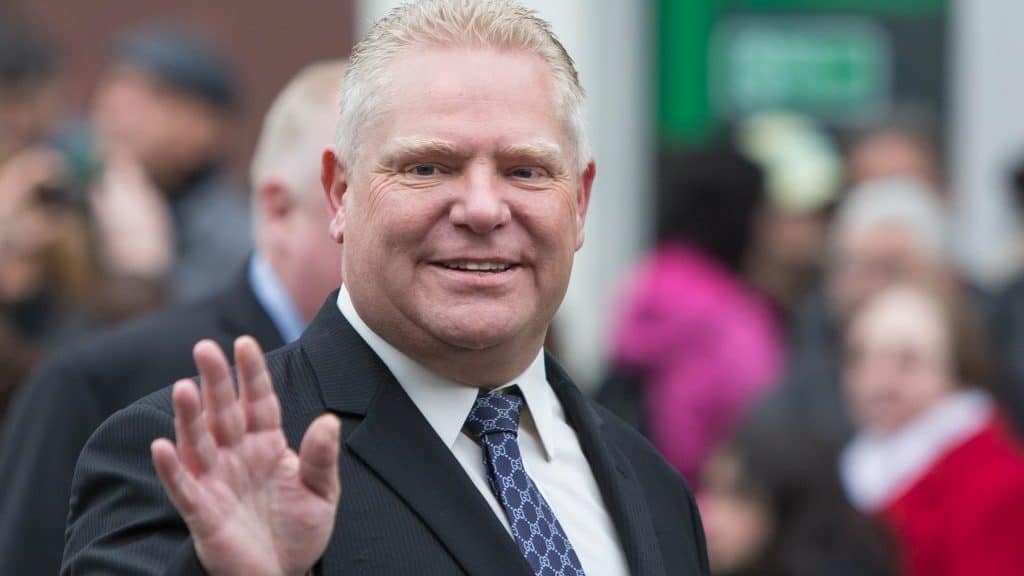TORONTO — The province’s decision to open up the protected Greenbelt to housing construction favoured “certain developers” with ties to the housing ministry and failed to consider the potential consequences of the move, an investigation by the auditor general has found.
Bonnie Lysyk said the Ontario government “proceeded with little input from experts,” and did not weigh the environmental, agricultural and financial risks and impacts of the 2022 decision to remove some lands from the Greenbelt for development, while adding others.
She said the owners of the 15 land sites removed from the Greenbelt could see an $8.3 billion increase to the value of those lands and that 14 of those sites “were brought into the exercise” by the housing minister’s chief of staff.
“The exercise to change the Greenbelt boundaries in fall 2022 cannot be described as a standard or defensible process,” Lysyk stated. “The truncated and highly restricted land selection exercise excluded substantive input from land-use planning experts in provincial ministries, municipalities, conservation authorities, First Nations leaders, and the public, while giving preferential treatment to certain developers with direct access to the chief of staff to the Minister of Municipal Affairs and Housing.”
Lysyk said the entire process to unlock portions of the Greenbelt was conducted in three weeks and was co-ordinated by Housing Minister Steve Clark’s chief of staff, Ryan Amato, who was not named in the report.
Premier Doug Ford and Clark both told Lysyk that they were unaware that the land chosen for removal was controlled by Amato.
The auditor general provided 15 recommendations to the province, including a re-evaluation of the decision to change the Greenbelt boundaries.
Lysyk found that the selection of those 15 sites was “biased” and lacked transparency.
After the Conservatives won the June 2022 election in a landslide, Ford directed Clark in a mandated letter to “complete work to codify processes for swaps, expansions, contractions and policy updates for the Greenbelt,” the report said.
The housing ministry provided Clark’s chief of staff, Amato, with two options: an overall review of the Greenbelt or the selection of specific sites, Lysyk wrote.
Last October, Amato directed the housing ministry to form a small team of six to 10 public servants to assess specific sites rather than an overall review.
Amato then directed this “Greenbelt Project Team” to not disclose any information and had them sign non-disclosure agreements.
The work was to be done quickly as part of the province’s sweeping reforms on housing development, with its goal of building 1.5 million homes over 10 years.
The housing minister’s chief of staff then provided that Greenbelt team with 21 of the 22 sites assessed for removal.
Amato told the auditor general during the probe that he selected the land based, in part, after talking to a few developers at the Building Industry and Land Development Association’s Chair’s Dinner on Sept. 14, the report said.
“Two prominent housing developers approached him and gave him packages containing information to remove two land sites from the Greenbelt,” Lysyk wrote.
Amato told the auditor general that he did not open the packages immediately, but kept them in a stack in his office and added to them as more packages rolled in.
“Altogether, those who had access to the Chief of Staff at the September BILD event ended up with land removals that accounted for 6,784 acres, or 92 per cent, of the 7,412.64 acres ultimately removed from the Greenbelt in December 2022,” Lysyk wrote.
One of those developers who benefited was the De Gasparis family, which owns TACC Developments. Sylvio De Gasparis has close ties to Ford. One of the sites recommended for removal was part of the Duffins Rouge Agricultral Preserve.
The province, in its response included in the report and written by Ford’s Chief of Staff Patrick Sackville, said it accepts 14 of the 15 recommendations.
“We agree that there is always an opportunity to improve the way that the political public service works together to establish, implement, and deliver for the people of Ontario through enhanced government policies and programs,” he wrote.
Lysyk launched a value-for-money probe on the Greenbelt decision in January after a joint request from all three opposition leaders.
© 2023 The Canadian Press


